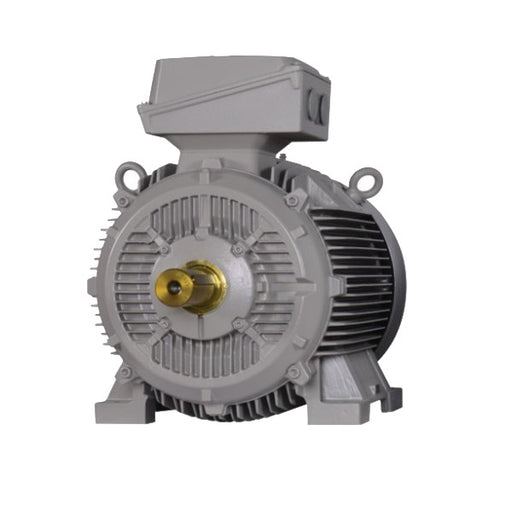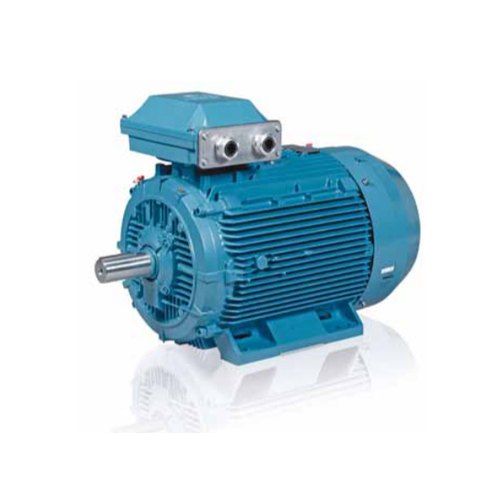3 Phase Induction Motor
Explore High-Quality Options at Vashi Integrated Solutions
Discover the versatile range of electric motors at Vashi Integrated Solutions, Our collection includes three-phase motor, FLP and non-FLP motors, available in foot-mounted, flange-mounted, and face-mounted configurations to meet your specific requirements. We prioritize energy efficiency with our lineup of IE1, IE2, IE3, and IE4 motors, designed to minimize energy consumption while maximizing performance. Whether you need a 3 HP Motor, 2 HP Motor, 1.5 HP motor, our selection is tailored to your needs. Our electrical motors are crafted with premium materials and advanced technology, ensuring reliable and long-lasting performance. Partner with Vashi Integrated Solutions for access to top-quality brands such as Hindustan, Bharat Bijlee, ABB, Siemens, Weg, and more.
Exploring the World of Electrical Motors
-
Induction Motors: Known for their robustness and efficiency, induction motors are commonly used in applications requiring high reliability. They are available in three-phase versions. Induction motors operate based on the principle of electromagnetic induction. When an alternating current (AC) flows through the stator windings, it creates a rotating magnetic field. This magnetic field induces a current in the rotor, which generates a secondary magnetic field. The interaction between these fields produces torque, causing the rotor to turn and deliver mechanical power.
Key Considerations for Selecting Electrical Motors
Brand Matters: At Vashi Integrated Solutions, we offer a diverse selection of high-quality electric motors from renowned brands such as Hindustan, Bharat Bijlee, ABB, Siemens, and Weg. Our motors are built with advanced technology and superior materials, ensuring long-lasting performance and reliability.
Budget-Friendly Solutions: There's an ideal motor for every budget. It's essential to research and select a motor from a reputable firm that offers reliable components and an extensive warranty, ensuring both affordability and quality.
Understanding Torque and Horsepower: The motor's base speed is a crucial consideration. The number of poles and the base speed of the motor are intertwined. It's important to understand the relationship between torque and speed. As the motor's speed increases, the torque decreases. Additionally, the horsepower requirements should be meticulously assessed.
Inverter Duty: Pay close attention to the noise levels produced by the induction motor. The voltage rating should be taken into account, along with the presence of a variable-frequency drive (VFD). The motor winding's magnetic wire has a voltage rating ranging from 1000V to 1600V. Furthermore, the constant torque (CT) turndown is a critical aspect influencing the motor's ability to operate at lower speeds while maintaining torque output.
Top Brands for Superior Pump Motors
Hindustan Motors: Hindustan is synonymous with high-efficiency and energy-efficient designs. These motors are produced in cutting-edge facilities and offer exceptional efficiency, saving on energy costs. They also exhibit high resistance to motor burnout at low voltage and offer a wide range of voltage tolerance.
Bharat Bijlee Motors: Bharat Bijlee is one of the leading electric motor manufacturers in India.3 Phase AC Electrical Rotating Machine ranging from 0.12 kW to 1250 kW We are a preferred brand across sectors like cement, construction, steel, food & beverages, water & wastewater, and sugar & distilleries, to name a few. Our motors are suited for applications like pumps, compressors, fans and blowers, conveyors, lifts, screens, vibrators, centrifuges, stone crushers, and many more.
ABB Motors: ABB Motors As a global leader in technology and innovation, ABB Motors stands at the forefront of the industry, delivering unparalleled solutions for your diverse needs. ABB motors ensure meticulous care, making them reliable and of exceptional quality for fluid-based applications.
Siemens Motors: We cover the complete range of industrial motors, synchronous as well as asynchronous: from standard electric motors through servomotors for motion control applications up to high-voltage motors
Panasonic Motors: Panasonic Motors, one of the world's largest motor manufacturers, offers AC servo motors that function for systems where precision, smart control, safety, and easy configuration are needed.
Bonfiglioli Motors: Are you looking for electric motors? Find your perfect synchronous and asynchronous motors. We provide our customers with complete solutions for planetary geared units, right-angle gearmotors and geared units, parallel shaft gearmotors, and geared units.
Weg Motors: WEG Electric Motors As one of the world's largest electric motor manufacturers, WEG specializes in branches such as command and protection, speed variation, industrial process automation, power generation and distribution, and industrial paints and varnishes.
Explore our Electrical Motors Collection on Motors today and discover how we can support your industrial and commercial applications with our high-quality, energy-efficient motors. Enhance your operations by adding our high-performance 3 Phase Induction Motor to your collection today.!!!
Q1: What is an electric motor?
A1: An electric motor is an electro-mechanical device that converts electrical energy into mechanical energy. It achieves this conversion through the interaction of magnetic fields and conductors, generating motion.
Q2: How do electric motors work?
A2: Electric motors work based on the principle of electromagnetic induction. When an electric current flows through a wire in a magnetic field, it creates a force, resulting in the rotation of a shaft and mechanical output.
Q3: What are the common applications of electric motors?
A3: Electric motors are used in a wide range of applications, including powering household appliances (like fans and refrigerators), industrial machinery, electric vehicles, pumps, and various automated systems.
Q4: What is the difference between single-phase and three-phase induction motors?
A4: Single-phase induction motors are typically used in domestic and light-duty applications, while three-phase induction motors are used in industrial and heavy-duty applications due to their higher efficiency and power capacity.
Find Related Searches
1 Horse Power Motor Price
2 Horse Power Motor Price
3 Horse Power Motor Price







